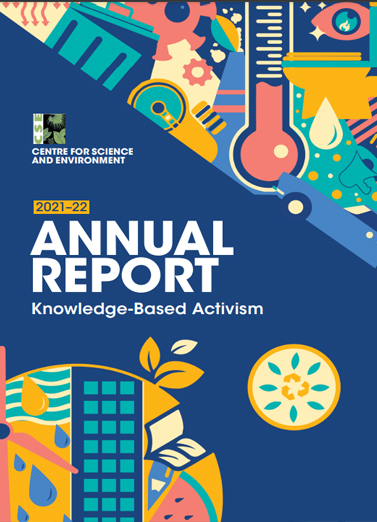Over the past decades, there is some news to cheer—environment has now become mainstreamed; we are all outraged at how pollution is affecting our health; how climate change is impacting the poor; how deforestation will lead to more poverty and desertification. This is also leading to change; things are getting better in some cases.
But the bad news is that we are not acting at a scale commensurate with the devastation that we see around us. Unless we take deliberate steps to reverse the damage, we are losing the battle. This tells us what needs to be done.
The really bad news, of course, is that climate change impacts are now visible and are devastating lives, particularly of the poorest who, in many cases, have no option but to migrate to cope with the relentless attacks on crops and livelihoods. We know from our work, that displacement because of extreme weather events has now outpaced migration because of war and conflict. In this last year, we have researched and communicated on many trends that should concern us—from the rising fodder shortages that will impinge on people's economies to the question of extinction, as the world loses more and more species to the so-called development race.
But in the last years, we have also found that there is a reason to celebrate; our work to stress on the need for reinvention in the method of management of our environment is finding takers. For instance, cities are learning the art of becoming waste-wise; learning to segregate at source; to minimise plastics and to reuse and reprocess waste into wealth. We are even taking household waste to manufacture fuel, which then runs buses in cities. More and more cities are moving towards off-site non-sewered solutions for excreta management, taking sewage from households to treatment plants that can then recycle and reuse waste. There is evidence that traditional and regenerative farming methods work. These systems are good for soil, water, productivity and farmers. Now we need to ensure that farmers benefit from them, so that good food is not a luxury of the rich, but affordable to all. Then there is a greater demand for community forest rights across the country; women are showing how they can manage forests for livelihoods, so that the country can build a wood-based economy.
The important point to realise is that change is visible. The very method of managing the environment has been re-engineered, so that there is an alternative pathway to growth or to minimise the adverse impact of growth. It is also a lesson to remember, as the country reviews strategies for new energy systems, like renewables or introduction of electric vehicles (e-vehicles). The fact is that in both the cases, the progress is sputtering and not accelerating because we are doing nothing with the deliberateness that the issues require. For instance, e-vehicles still constitute a mere three per cent of the new vehicles registered in India. And though solar and wind installations are growing, energy poverty is still real and hurtful. Energy transformation will need to be just and equitable to be affordable to the poorest.
The bottom line is that environmentalism and our work at CSE will need to keep pushing the envelope of change, even harder. It will need to track and report, so that the truth is not hidden and at the same time, has the courage to stand behind solutions. Environmentalism is about deepening of democracy not a techno-fix.
In all this, we have identified what we will do and what we will not do – in terms of our work as believe staying focused will give us the leverage to stay impactful.
• We do research that is credible and independent and in the public interest
• We call a spade a spade: but we are fact based; party politics neutral; so we are not always convenient; but we are listened to
• We look for solutions: we are not afraid to stay behind the ideas/work that is happening, however messy.
• We look for best practices as we believe these can be used to scale up and to bring change
• We communicate our research through multimedia, social media and print. We work hard to nudge change in thought and in practice through this amplification of our research and perspectives
• We deliberate work with multipliers – from educators to school children to regulators and government – to build capacity on new ideas and new practices on the ground. We stay focused on the change that needs to be brought in through continued research and engagement

Anil Kumar Agarwal
FOUNDER | DIRECTOR
Anil Kumar Agarwal was the founder-director of the Centre for Science and Environment, India’s leading environmental NGO. Agarwal spent his lifetime advocating policies that involve the people in natural resource management and learn from India’s own traditions.

Sunita Narain
DIRECTOR GENERAL
Sunita Narain has been with Centre for Science and Environment since 1982, and has headed it since 2000. Her research interests range from global democracy with a focus on climate change, to the need for local democracy where she has worked on forest-related resource management, water and waste issues. Ms Narain serves on the boards of different organisations, and writes and speaks regularly on key concerns of environment and development.

